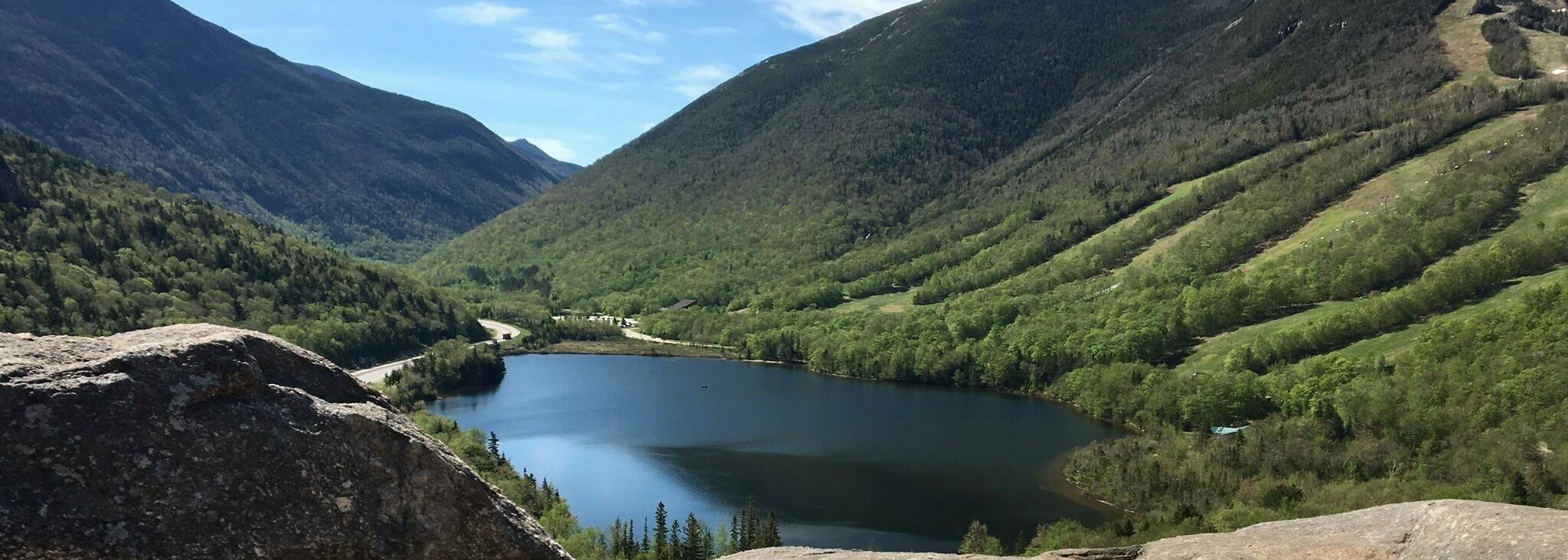The Intruder: Spiny Water Flea
The spiny water flea is an aquatic invasive animal in the United States. In 2023, it was found in Lakes Winnisquam and Winnipesaukee in New Hampshire. You will likely see them clumping on fishing equipment in an infested waterbody. A spiny water flea is smaller than a fingernail, with a long, spiny tail and large black eyespot. While these tiny invaders may seem harmless, their potential impact on the local aquatic ecosystems is far-reaching and profound. There are no treatments available to control this species once it is established.

The introduction of spiny water flea to our lakes poses several ecological and economic threats:
Destruction of Property
- The long, spiny tail of the water flea can become entangled in fishing lines. This causes knots and tangles that render the gear unusable.
- The hard, sharp tail of the spiny water flea can scratch and gouge fishing rods and reels. This leads to premature wear and tear.

Hurting the Fish Population
- They outcompete the fish that feed on the same zooplankton, and they are an unfit food source for small fish. This can lead to declining populations.
- They are an unfit food source for the prey who would eat the smaller fish they’ve outcompeted.
Increased Susceptibility to Cyanobacteria and Algae Blooms
- Spiny water flea will eat large quantities of certain zooplankton. These zooplankton usually eat algae. This allows algae to grow uncontrolled.
- Many lakes that experience increasing algal growth also experience an increase in toxic cyanobacteria blooms.
Economic Losses
- Invasive species like spiny water flea can deter tourism and affect local business success and property values. Homes by the water can be valued higher than others—but not when invasive species take over our lakes.
What can you do to stop the spread?
Report Where You Find it: With spiny water flea new to the Granite State, it is important to monitor its spread. If you find spiny water flea while out at the lake, help stop its spread and:
- Drop a pin on Google Maps
- Email your pin and photos to Amy.P.Smagula@des.nh.gov
CLEAN, DRAIN and DRY: We are responsible for keeping our boat, trailer, and other recreational gear clean of aquatic invasive species. One seed or larve can start an infestation. Our public and private launches are at the greatest risk.
- Dry Between Waterbodies
- Dry watercraft, boats, trailers and gear for at least five days between waterbodies
- Wipe down materials between uses
- Clean Your Craft with High Pressure (2500 psi) and Hot Water (140F)
- 10 seconds: Clean your boat and trailer with high-pressure hot water
- 2 minutes: Flush your motor and all compartments (bilge, live well, ballast)
- Soak Your Gear with Hot Water (140F)
- Soak for at least 2 minutes
- Fishing: Line, lures, nets, and hardware, bait buckets
- Boating: Anchor line and all other line or rope
Become a Lake Host: Volunteer or work at a public ramp near you to help educate boaters about the clean, drain, and dry methods and protect your lake from invasive species. Learn how you can get involved here.
Spread the word: Talk to your family, friends, and neighbors around the lake about the threat the lakes you love are facing! Increasing public awareness about the dangers of invasive species is crucial for prevention. Early detection helps prompt management actions.
Be active in your community: Work with your local lake association, Conservation Commission, and town officials to implement regulations and guidelines to prevent the spread of invasive species. Need some help knowing how to get started?
Spiny water fleas are a significant threat to New Hampshire’s lakes. Without controlling this species, we need urgent action to stop its spread. Through collaborative efforts, we can work towards preserving our lakes for generations.


 by NH Rocks
by NH Rocks